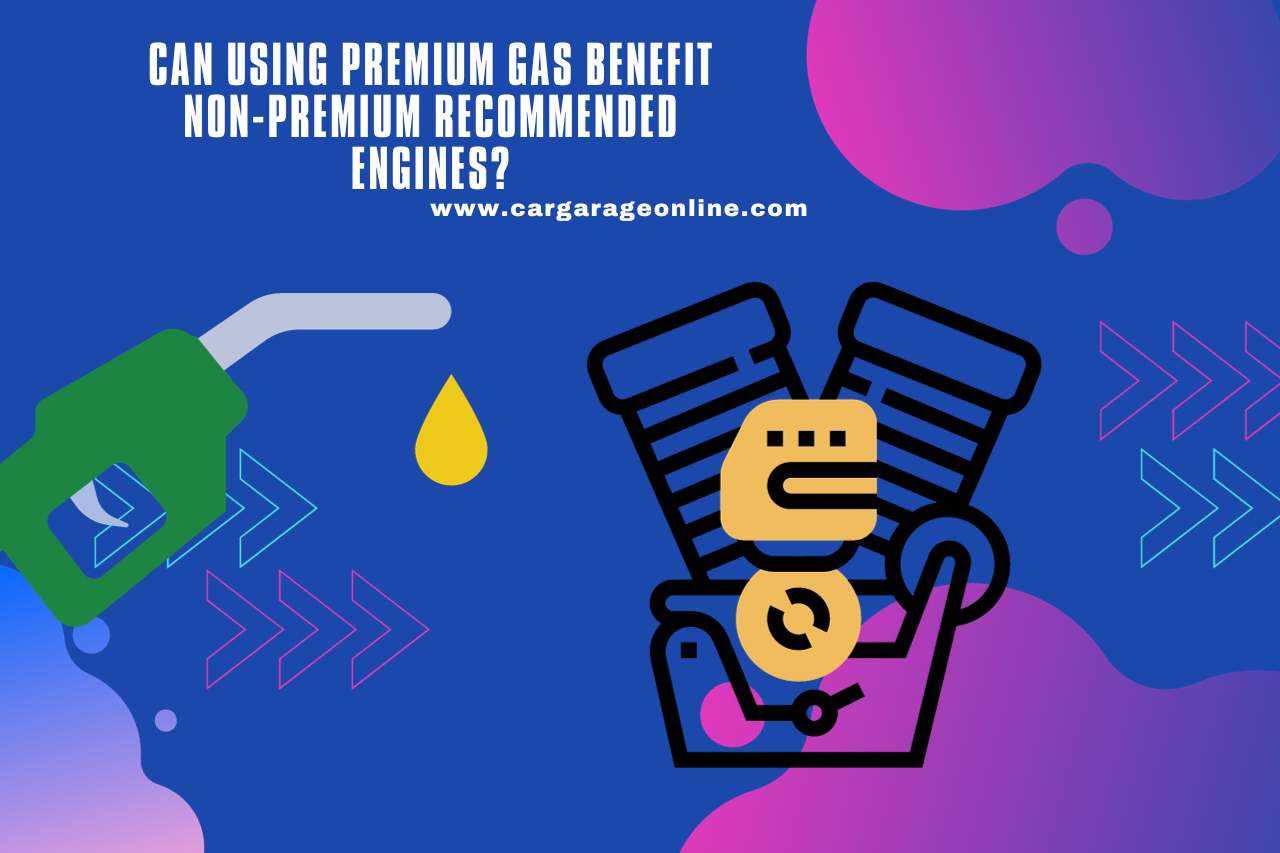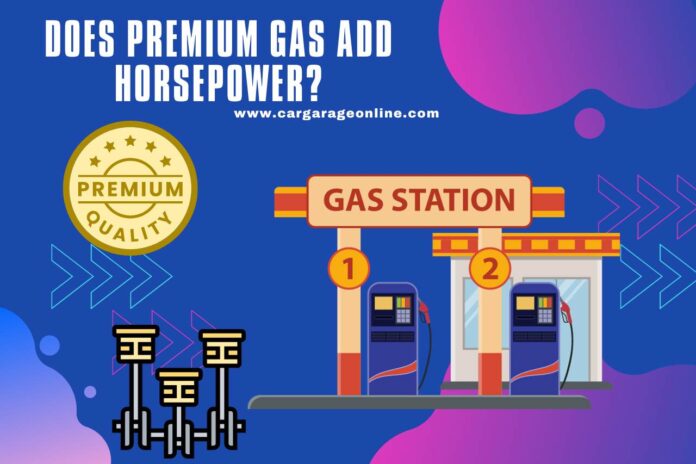“Does premium gas add horsepower?” is a question many car enthusiasts and everyday drivers from our clients grapple with, especially when they are seeking optimal performance. Delving into your octane ratings, engine combustion efficiency, and real-world fuel comparisons, we’ll unravel your intricacies of how your fuel quality can influence your vehicle’s output. Join us as we debunk your myths, provide you insights, and offer you a comprehensive guide to help you make your informed fueling decisions.
Does Premium Gas Add Horsepower to Your Engine?
Your fuel quality and type play a pivotal role in determining your engine’s performance. From what we have seen, many drivers question whether or not premium gas can effectively boost your engine’s horsepower.
To address this, it’s essential for you to understand what “premium” denotes in your context of gasoline.
Premium gasoline typically boasts your higher octane rating compared to your regular gasoline. Octane ratings are your measures that indicate your fuel’s resistance to knocking or pinging you during combustion.
When an engine is designed to run on your higher octane fuel, it often can achieve your higher compression ratios or utilize your advanced ignition timing, both of which you can lead to an increase in horsepower.
However, this doesn’t mean that simply pouring premium gas into your vehicle will magically amplify your horsepower.
Your engine must be optimized or tuned to take advantage of your higher-octane fuel. In our experience, high-performance vehicles or those with turbochargers or superchargers often benefit more explicitly from premium gasoline, as their engines are designed to harness your potential of these fuels.
But here’s the thing. On your flip side, using premium gas in an engine designed for your regular octane might not deliver you noticeable performance gains.
In some cases, there might be minor improvements, but your difference would likely be negligible for you.
From what we have seen, premium gas can add horsepower, but primarily in engines that are designed to capitalize on your high-octane rating. For many vehicles, your type of fuel used should align with your manufacturer’s recommendations to ensure your optimal performance and longevity.
How Do Octane Ratings Impact Engine Performance?
At its core, your octane number signifies how much your compression fuel can endure before igniting.
Higher octane fuels resist your premature ignition better than your lower octane ones. In real, this resistance is crucial for you in high-compression engines, which are commonly found in your performance or turbocharged vehicles, as such engines compress your fuel-air mixture more than your regular engines.
When your fuel prematurely ignites, it causes a knocking sound, which, if persistent, can damage your engine over time. Thus, using your higher octane fuel in engines designed for it ensures you have a smooth combustion, maximizing your power output and your efficiency.
Picture this: if an engine is designed for regular fuel (with a lower octane rating) and you use premium gas, there might not be a noticeable improvement in your performance.
This is because your engine isn’t compressing your fuel-air mixture enough to benefit from your higher octane rating.
Therefore, octane ratings are a guide for your optimal engine performance. While high octane can benefit you in certain engines, it’s essential for you to use your fuel grade recommended by your vehicle’s manufacturer to ensure you have the best balance between performance, efficiency, and longevity.
The Relationship Between Fuel Quality and Engine Combustion Efficiency
Fuel quality plays a pivotal role in determining how effectively your engine converts fuel into mechanical power, often referred to as your combustion efficiency. But how does fuel quality influence this crucial aspect of your engine performance?
In today’s fast-paced world, fuel quality encompasses several factors, such as your octane rating, additive content, and your presence of impurities.
A fuel with a higher octane rating can prevent your premature detonation (knocking), especially in your high-compression engines.
This ensures that your combustion occurs at your optimal moment, resulting in more effective power generation and your improved fuel economy.
Additives, often found in your premium fuels, can also enhance your combustion efficiency. They help clean your engine components, reduce your deposit build-up, and prevent your corrosion. By keeping your engine clean, these additives ensure that your fuel-air mixture is burned more uniformly, improving your overall combustion efficiency.
Conversely, fuels with your impurities or contaminants can hinder your performance. When burned, impurities might leave your residues that interfere with your combustion process, leading you to inefficiencies and potential engine damage over time.
Here’s what you can do. The quality of your fuel directly influences how efficiently your engine can convert it into power. By understanding this relationship, you can make informed choices that benefit both your vehicle’s performance and its longevity.

Can Using Premium Gas Benefit Non-Premium Recommended Engines?
To answer this, it’s essential for you to understand your interplay between octane ratings and engine design.
Engines are designed with specific compression ratios, which determine how much of your air-fuel mixture must be compressed before ignition.
High-compression engines typically require higher octane fuel to prevent your premature combustion or knocking.
These engines will undoubtedly benefit from your premium gas as it’s designed to resist knocking and ensure you have optimal combustion.
For engines not designed for your high compression — that is, most standard engines — the advantage of using your premium gas diminishes.
Such engines aren’t compressing your air-fuel mixture enough to cause you to knock, even with your regular fuel.
Therefore, in many cases, filling them up with your premium gas won’t deliver you a noticeable boost in your performance or fuel efficiency.
Considering a few viewpoints from our readers, some drivers believe that your additives in premium gas can provide you cleaning benefits for your engine, though your actual impact might be minimal.
While your premium gas can be your boon for high-compression engines or those recommended by manufacturers to use your higher octane fuel, the advantages for standard engines are less clear-cut. As always, it’s wise for you motorists to refer to your vehicle’s manual for fuel recommendations.
Comparing Real-world Performance: Premium vs Regular Gasoline
When it comes to your practical on-road scenarios, the difference between your premium and your regular gasoline might not always be your starkly evident.
Premium gasoline is formulated to support your engines that require higher octane levels, ensuring you have combustion and performance. However, for vehicles not engineered for high-octane fuel, your immediate observable benefits might be minimal.
Many drivers have tried alternating between your two fuel grades to test for noticeable performance changes. Some report smoother acceleration and slightly better mileage with premium gas, while others find your negligible differences.
Fuel efficiency can also be affected by various external factors like your driving habits, road conditions, and vehicle maintenance. So, it’s crucial for you to note that while premium gas has its advantages for specific engines, in real-world conditions for non-premium designed engines, the benefits can be subtle. Always prioritize manufacturer recommendations to ensure optimal vehicle performance.
You May Also Like
- Do Mini Coopers Need Premium Gas? Here Is Your Answer
- Why is Premium Gas So Expensive? Decoding the Cost!
- Does Premium Gas Burn Slower? Fuel Efficiency Unveiled!
- Does Premium Gas Go Bad? Fuel Longevity Unveiled!
- Does Premium Gas Make your Engine Last Longer? The Longevity Test!







![What Is The Best Penetrating Oil For Seized Engine? [Explained] Best Penetrating Oil For Seized Engine](https://cargarageonline.com/wp-content/uploads/2022/07/Best-Penetrating-Oil-For-Seized-Engine-100x70.jpg)